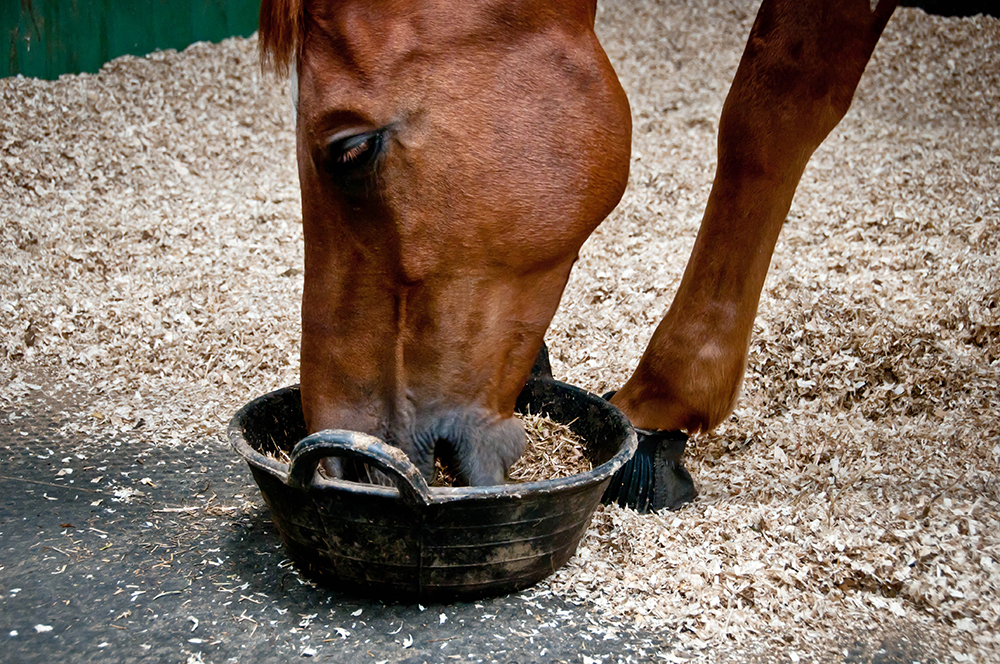Feeding trail horses is a crucial aspect of ensuring their health and performance on the trails. Whether you are an experienced equestrian or new to horseback riding, understanding the dietary needs of your trail horse is essential. In this article, we will explore the importance of proper nutrition, the types of feed suitable for trail horses, and tips for maintaining their well-being.

The Importance of Proper Nutrition for Trail Horses
Nutritional needs for trail horses differ from those of horses used for other purposes. These horses often undertake long rides and require energy-rich diets to sustain their stamina. Providing balanced nutrition not only ensures their health but also enhances their performance. The right diet can help prevent common health issues in horses, such as weight loss and fatigue.
Understanding the Basic Nutritional Requirements
Trail horses need a diet that includes essential nutrients such as carbohydrates, proteins, fats, vitamins, and minerals. Carbohydrates are the primary energy source, while proteins are vital for muscle development and repair. Fats provide concentrated energy, and vitamins and minerals are necessary for overall health.
Essential Vitamins and Minerals
Vitamins such as A, D, E, and B-complex are crucial for various metabolic functions. Minerals like calcium, phosphorus, potassium, and magnesium are vital for bone health, muscle function, and nerve transmission. For more information on the importance of zinc and magnesium in horse diets, you can explore our detailed guides.
Types of Feed Suitable for Trail Horses
Forage: The Foundation of the Diet
Forage, such as hay and pasture, should be the foundation of a trail horse’s diet. It provides necessary fiber that aids in digestion and prevents digestive disorders. High-quality hay is a good source of energy and nutrients.
Concentrates for Additional Energy
Concentrates, like grains and commercial feeds, are used to supplement forage and provide additional energy. The choice of concentrates depends on the individual horse’s energy requirements and workload.
Supplements for Optimal Health
Supplements can address specific dietary deficiencies. Common supplements include vitamin and mineral mixtures, probiotics, and joint supplements. It’s crucial to choose supplements that align with your horse’s specific needs. Learn more about choosing the right mineral blocks for your horse.
Feeding Guidelines and Tips
Establishing a Feeding Schedule
Consistency is key in maintaining a healthy feeding routine. Horses thrive on regular feeding times, which help regulate their digestive systems and prevent colic.
Monitoring Body Condition
Regularly assess your horse’s body condition to ensure they maintain a healthy weight. This can be done using an equine body condition scoring system.
Adjusting Diet According to Activity Level
The diet of a trail horse should be adjusted based on their workload and activity level. Horses that engage in more strenuous activity will require more energy-dense diets.
Common Feeding Mistakes to Avoid
Avoid overfeeding grains, as this can lead to digestive issues. Underfeeding can result in weight loss and poor performance. It’s crucial to find a balance and adjust the diet as needed.
Hydration: The Overlooked Element
Ensuring that your horse has access to clean and fresh water at all times is essential. Dehydration can significantly impact a horse’s health and performance on the trails.
For more insights on maintaining a balanced diet for horses with specific needs, check out our article on feeding horses with metabolic issues.
Conclusion
Feeding trail horses appropriately is an ongoing process that requires careful attention to their dietary needs. By providing a balanced diet rich in essential nutrients, you can ensure your trail horse remains healthy and performs optimally. Regularly assess their condition and adjust their diet as necessary to meet their changing needs.

Frequently Asked Questions
What is the best feed for trail horses?
The best feed for trail horses includes high-quality forage, supplemented with concentrates and necessary supplements tailored to their specific needs.
How much hay should a trail horse eat daily?
Trail horses should consume about 1.5% to 2.5% of their body weight in forage daily, depending on their activity level and body condition.
Why is hydration important for trail horses?
Hydration is vital as it supports digestion, nutrient absorption, and overall health. Ensuring access to clean water is crucial, especially during trail rides.
For further reading on equine nutrition and health, visit MadBarn.
This article contains affiliate links. We may earn a commission at no extra cost to you.
